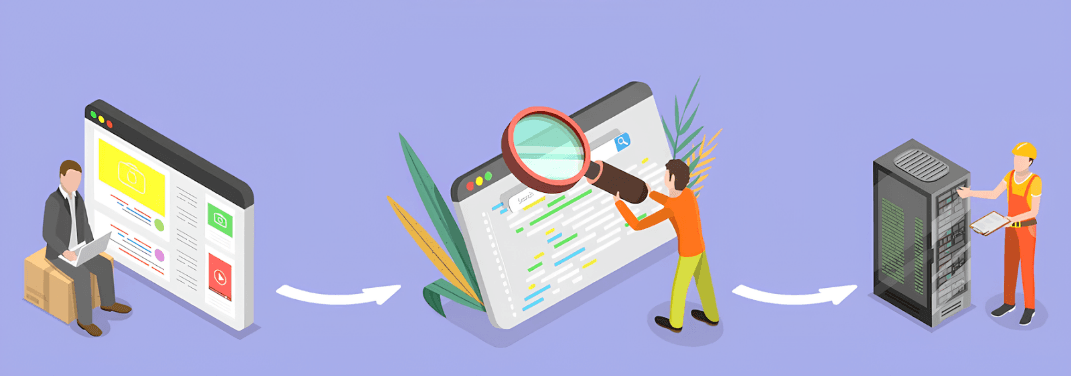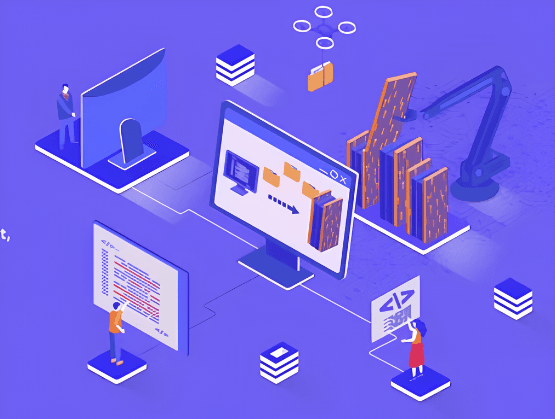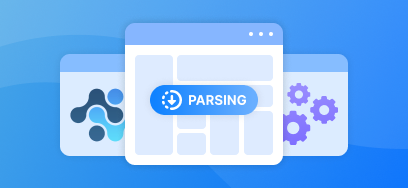What Is Website Parsing, Why Is It Important, and How Can You Use Parsing Effectively?

Knowledge is power in the Information Age. Parsing web pages, or web scraping, is the retrieval of information from web pages. It is usually accomplished by automated scripts in the way of parsers that are applied to collect, organize, and analyze data for any number of purposes. Parsing is essential to data collection, conversion, and usability in many industries and applications.
Parsing websites can be used to extract various types of information, including:
- Live data like news, exchange rates, weather conditions, and product prices.
- Market and competitor intelligence, like price monitoring or SEO strategy analysis.
- Translation of foreign site content.
- Analysis of customer and social media reviews.
Parsed data can be used for:
- Marketing strategy and SEO optimization improvement.
- Price management and forecasting analytics.
- Content creation and competitive analysis.
- Lead generation and customer profiling.

Legal status of web parsing depends on the use of the parsed data. Parsing publicly available information is usually legal, but there has to be respect maintained:
- To copyright law and terms of service of the sites.
- To privacy legislation by avoiding personal data collection.
- To ethical guidelines, e.g., avoiding server overload or DDOS attacks.
There are various methods of web page data extraction:
- Manual Parsing: Manually copying and pasting information (time-consuming and inefficient).
- Web Scraping: Using scripts and frameworks to automatically parse information.
- Cloud Services & Browser Extensions: Software that allows non-programmers to customize data extraction.
- Automation Software: Software like Zennoposter and Zennodroid automate parsing tasks without programming.
- Parsing vs. Web Scraping
- Web scraping is the automated retrieval of data from websites.
- Parsing: analysis and structuring of extracted data (for example, converting HTML data into a structured data format like JSON or XML)
- Crawling: automated navigation of web pages (used by search engines to index material).
Python is one of the most popular programming languages for parsing due to its rich ecosystem of libraries. Some commonly used tools include:
- BeautifulSoup – For extracting and parsing HTML data.
- Scrapy – A powerful web scraping framework.
- Selenium – For interacting with dynamic web pages.
Example 1: Parsing Weather Data with BeautifulSoup
import requests
from bs4 import BeautifulSoup
url = 'https://www.example.com/weather'
response = requests.get(url)
if response.status_code == 200:
soup = BeautifulSoup(response.text, 'html.parser')
weather_info = soup.find('div', class_='weather-info')
temperature = weather_info.find('span', class_='temperature').text
condition = weather_info.find('span', class_='condition').text
print("Temperature:", temperature)
print("Condition:", condition)
else:
print("Error retrieving weather data.")Example 2: Parsing News Headlines with Scrapy
import scrapy
class NewsSpider(scrapy.Spider):
name = 'news'
start_urls = ['https://example.com/news']
def parse(self, response):
news_titles = response.css('h2.news-title::text').getall()
for title in news_titles:
yield {'title': title}To run the spider and save results to a JSON file:
scrapy crawl news -o news_titles.jsonSeveral tools and libraries can facilitate website parsing:
- ParseHub, Scraper API, Octoparse, Netpeak Spider – Cloud-based scraping tools.
- Google Sheets (IMPORTHTML function, Apps Script) – Simple scraping without coding.
- Power Query (Excel Plugin) – Extracts and transforms web data.
- Node.js (Cheerio library) – JavaScript-based web scraping.
- Zennoposter – Automates web tasks and works with CapMonster Cloud for CAPTCHA solving.
- Send an HTTP request to load the target webpage.
- Parse the HTML using libraries like BeautifulSoup or Scrapy.
- Extract relevant data using CSS selectors, XPath, or regex.
- Process and structure data in a suitable format (JSON, CSV, database, etc.).
- Store or analyze the extracted data for further use.
Some websites restrict web scraping. To bypass these restrictions:
- Limit request frequency to avoid excessive server load.
- Use proxies to distribute requests across multiple IPs.
- Respect robots.txt to check which pages allow parsing.
- Cache requests to minimize redundant traffic.
- Rotate User-Agent headers to simulate different browsers.

The majority of websites use CAPTCHA to prevent automated data scraping. To circumvent CAPTCHA:
- Use CAPTCHA-solving services like CapMonster Cloud.
- Utilize headless browsing techniques (i.e., Selenium with CAPTCHA solvers).
- Train a model to automatically detect and solve CAPTCHAs.
Web parsing is a powerful instrument that allows for automatic data scraping, saving time and funds. For SEO research, market analysis, or content generation, parsing keeps businesses ahead of the curve. However, ethical and legal considerations should always be taken into consideration to ensure responsible data scraping.
Note: We'd like to remind you that the product is used for automating testing on your own websites and on websites to which you have legal access.

